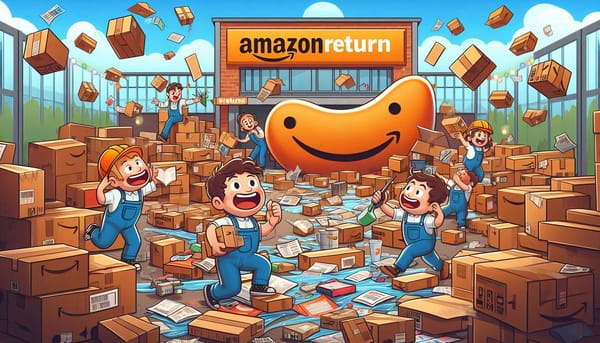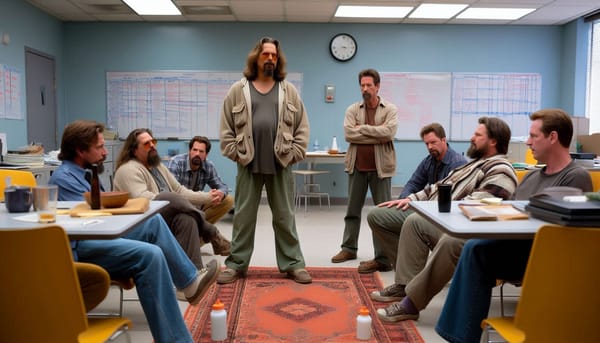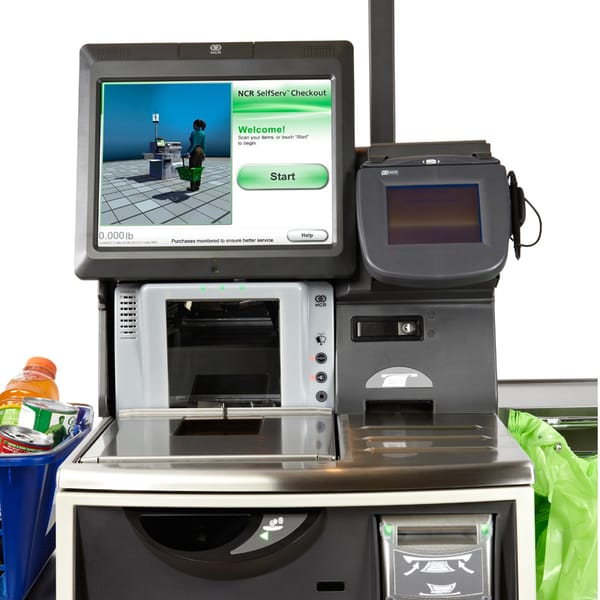Optimizing your Resume for a Product Role
For product manager roles, the standard wisdom around resume creation and curation are not applicable. Be sure to get yourself on the best legs for your search

It is an age-old argument, about the optimal length of a professional resume, with the consensus being loosely around it being 2 pages (front and back) with plenty of white space, and clear formatting to keep it clean for the recruiter or the initial screening to quickly get the gist and either put it in the next step pile, or to bin it.
And, I will admit that there is some logic to that reasoning, for most positions, you are competing with scads of other applicants, and attracting the eye of the first contact within an organization is crucial. Short, sweet, and popping with delicious attraction is cool.
But product in general is not a beauty contest. While I no longer regularly hire product managers, when I did, I needed information about a person, not just their cherry-picked positives. I needed to know how they got into product, what sort of experience with customer interactions they have, and - more importantly - how and why they made the jump to product.
And this is just impossible to get that in a single page resume. You keep it to a few past positions, rarely going more than 5 or 6 years, your descriptions are short and truncated, the rationale is that in an interview you will explain the larger scope.
But, if you don’t catch the eye of the recruiter, none of that will matter, as your resume will get binned.
But what is a good approach? How should you ensure that your resume pops, and filters to the top? and lastly, what are hiring managers looking for?
It Depends …
There are a lot of intangibles that you will need to weigh before deciding what is the proper approach. Answer these questions:
- Where are you in your Product Management career?
- What is the job posting seeking?
- Why are you applying to this position?
Each of these questions is revelatory.
First, let’s dispense with the wisdom of squeezing a resume into a single page. I get why this used to be a top priority, yet there are some roles that it just plain doesn’t work for. You can bet that a candidate for a CEO position will not have a 1 pager. While I do not subscribe to the trope that a Product Manager is the CEO of the product, it does highlight the importance of having the right person in the role. Success and failure is divided by the suitability of the applicant, the organization you have (not the one you wish you had) and the alignment of past experiences, and proclivities to the role at hand.
Here is where I get frustrated with the hiring managers and the teams that build the requisitions. They seem to suffer from the Kitchen Sink fallacy. As in, if you toss a ton of requirements into the mix, someone will crack the code and get through. But that leads to people crafting the resume to address the demands, and, uh embellishing a bit to cover as many bases as possible.
If you are looking for someone to be a Product Owner+, then you can craft the req to get those people. If you are looking for a seasoned veteran, ask for years of experience. If you are looking to grow someone into the role, then dial it back to widen the search bars. If you are a SAFe house, then by all means say you are looking for someone with that direct experience (or certifications).
It is all too easy to see reqs that were written by committee, with HR dipping their toe in to broaden the criteria. Unfortunately, instead of getting more and better candidates, this leads to chaos, chaos that the hiring manager needs to filter through.
How do you stand out as a candidate?
Cover more time - often the advice is to drop roles older than a certain time frame to keep the resume brief. But Product Managers are institutional roles, and as such, your work history is more important than brevity. Always.
Here is where the time in the role, the growth you have experienced and what you have learned can come out organically via your work history. If you are mid or late career product management, highlight the past, work to show growth in responsibilities and results. Don’t go too far, and whatever you do, DO NOT OVEREXAGGERATE. You will really piss off the screener/recruiter and the hiring manager if what you present as is materially different than what you wrote.
Take away: Go back at least to the first product management role. But I like to see where you jumped from into product.
Emphasize any product adjacent experience - by and large, people do not come out of college ready for product management. Sure, there are MBA programs focused on product management, and there are a slew of formal and informal training certificates that will give you some familiarity with the role and responsibilities, but that is not going to land you a good gig.
This is mostly applicable to early career product managers. You are facing the catch-22 of you need experience to get a product manager job, but you don’t have any experience.
However, there are several near adjacent roles. I have written about my entry into product management, stepping in after a few years of being an applications engineer, with some marketing experience. But a sales engineer role, or even someone who does field service and support will pick up crucial people skills that are essential to product.
If you are trying to break into the field of product management, one of these sorts of roles will be far easier to transition from into product.
Be realistic on what you can do - not all jobs are going to be high profile, intense roles that will springboard your career. Just because you want to work at Facebook, Apple, or Netflix doesn't mean you have to apply there. They are very selective, and able to command the best candidates on the planet.
However, as digital transformations are spreading like wildfire, very few medium to large companies do not have technology projects (internal, or external) and product teams that own them. Hell, some of these roles are fabulous ways to get into the field. Medical devices, loan processing, even something as mundane as commercial printing is getting a huge technology makeover, and that opens up tons of product management roles. Sure, they may not be as sexy as working for one of the MANGA companies, but they are often great roles, and where you will have a chance to really be a part of something much larger. And more importantly, it can provide the experience to reach for the next rung on the career ladder.
A long time ago, I read about life at Microsoft, where product managers are called “program managers” and one person was the program manager of the Start button on the Windows Vista product team. To me, that seems like such a circumscribed role that I would much rather go work for a paint company
think of a paint company. They couldn’t possible need product managers, right?
But you would be wrong. They are developing apps for smartphones to select colors, to see color schemes overlaid on an image you take of the interior of a room, and many other cool things.
Think they do that without product management? Think again.
Why are you interested in this position - be honest. Do you love the product? Do you want to work for that company? Do you think it is cool? Be sure that you can get excited about it. If you are grasping at straws in applying, shot-gunning the resumes, you will come across as disinterested.
Look at the product, the company. Do some homework on how they got to where they are and look to identify why you think you can add value. If you can’t get yourself excited about it, you will come across as flat and off putting.
If you can’t see yourself sinking your teeth into the opportunity, can’t see yourself getting up every day thinking about how to succeed then you will betray this lack of interest in the screen and interview.
And, for the love of God, do not apply for a role that you know you will hate or be unfulfilled at with an eye to jumping to a more exciting group within the company. Because, in my 25+ years of experience, I have not seen that happen. Instead, you get hired to a role you hate, you try to jump to the other group as soon as possible, burning the hiring manager, and ultimately when you leave to go elsewhere (usually after 12 or 18 months) you will leave a bad taste behind.
If you are interviewing for a job as the product manager for a Facsimile server, you do not need to be an expert on the technology, but you need to honestly be able to get excited about the technology and be convincing during the interview cycles. Then, if you get the job, you need to roll up your sleeves, and embrace it. Yes, that is one of the roles I have had, and I can tell you that as un-sexy as Fax servers are as a technology, people use it for very important communications, and that remains a strong (if not growing) business.
Do not overlook the Cover Letter
I will admit for the first decade or so in product, I just tossed the cover letter of applicants as some useless frippery. But then I was looking for an application scientist, and needed someone with a PhD in Biology or Chemistry. I got over 500 applicants in the first three days. What this told me beyond the fact that far too many people get PhD's in this country, is that the 30 or so people who wrote thoughtful, targeted cover letters got the full look.
As a hiring manager, it was a good initial filter. Now I 100% recommend it.
Make it one page. Make it personal. Make it seem like you did more than just read the req. Bonus points if you figure out who "might" be the hiring manager (many companies make that almost impossible to divine) by scouring LinkedIn and other sources.
Final Thoughts
There are no perfect resume formats. Do not succumb to the advice du jure. It needs to have enough detail, it needs to be relevant. It needs to show that your career has progressed. It needs to show that you are an interesting person.
In short, the job search is not a one-way street. It is you selling yourself, and it is the company/hiring manager selling you on the position. Some tarting it up is good. Just don't go to far.
Buon Appetit!
Can I ask you a favor? If you liked this, can you share it? I no longer participate in any social media, and I count on people like you to spread the word. Share the link, email it to a friend, post it to your socials. I would be greatful!



